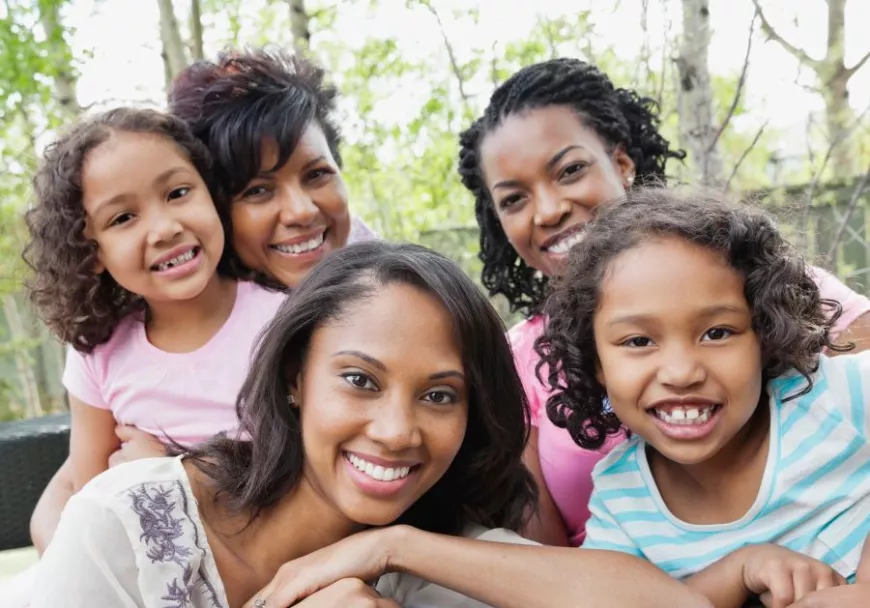8 most frequently asked questions about kinship care [what you need to know right now]

In the U.S., there are currently 8 million children living in households headed by grandparents or other relatives - 2.5 million of those children live in relative-headed households without their parents present. On a state level, here in Minnesota, there are approximately 68,000 children living with grandparents and another 21,000 children living with other relatives.
From a parent entering drug treatment or incarceration to experiencing an emergency situation, there are a variety of ways that family or friends can find themselves becoming a kinship caregiver for that parent’s child. It can develop slowly or happen overnight. No matter the reason, if you are a kinship caregiver, just know you are not alone.
New role, new challenges, new questions
Navigating this new role as a kinship caregiver can feel scary and overwhelming. Where do you even start? It can be hard to find and access clear, supportive information about your new role, so we have put together this list of answers to the 8 most frequently asked questions about kinship care [what you need to know right now].
Visit our website to find an extensive list of Caregivers Frequently Asked Questions. Contact us for more assistance at 877.917.4640 or warmline@lssmn.org.
-
I am concerned about the safety of a child, what can I do?
Adults should be aware and help children who may be in an unsafe situation. Talking with the parent(s) or caregivers is a start, and kinship caregivers can offer support and resources to help a parent who may be having a difficult time. If you have witnessed abuse or neglect, you must report this and/or consult with child protection on your concerns. Learn more about LSS Kinship Caregiver Resources, Child Protection and Foster Care.
-
Can the child I am caring for receive county benefits, such as food supports and cash assistance?
Yes, if you are closely related to the child, or have legal custody, the child may be eligible for the MFIP Child Only Grant. This can help the child by offering monthly cash support and Supplemental Nutrition Assistance Program (SNAP) benefits. It is based on the child’s income, so it is worth applying for at your county financial assistance office if the child does not have income.
-
My sibling lives with me and needs medical care; what can I do?
In Minnesota, medical assistance (Medicaid or MA) is available based on income. If your sibling has little to no income, it is best to apply for Medical Assistance. This is a comprehensive insurance for low-income children and adults.
-
Where can I find support, as a kinship caregiver?
It is important to be able to share your experiences, as well as successes and difficulties, when raising children who may have experienced difficult situations. LSS Kinship Support and Education Groups provide a safe space for kinship caregivers to come together, learn resources and support one another. We focus on our Protective Factors: Caregiver Resilience, Social Connections, Knowledge of Parenting and Child Development, Concrete Support in Time of Need, and Social/Emotional Competence in Children.
“I have learned a lot from this group and appreciate the support. This is one place I can be myself, where people understand what I am going through.”
– Kinship parent
-
I have heard about getting “third-party” custody of a child; what does that mean?
Third-party custody is when a court gives legal and physical custody of a child to someone who is not a biological parent. This person is sometimes called the custodian. This is a court process which happens in family court. Sometimes caregivers may be eligible for legal aid assistance in this matter. LSS Kinship Caregiver Resources include forms and instructions for starting a court case to establish custody of a child who is not your own.
-
I don’t want to go to court to help my relative’s child; is there another option?
Yes, there is a document called a Delegation of Parental Authority (DOPA) which could be signed by the parent. This does not involve a court process.
-
My grandchild is in foster care; what can I do to care for them?
Foster care is a temporary situation, and you have a right to apply to become a licensed foster provider. It is important to do this as soon as possible. You can apply with your county of residence, a private foster agency, or tribal social services. There will be background checks, home visits, training and paperwork to be completed.
-
My cousin was adopted out of the family through foster care; can I visit them now?
Prior to the adoption occurring, a contact agreement is often created to outline arrangements between family members and children. This agreement will determine how visits with biological family can proceed.
Get the answers and support you need
LSS Kinship Family Support Services provides education, information and compassionate support for families seeking resources in raising a relative’s or friend’s child. Financial, legal, medical and caregiving resources are available to families caring for kinship children. We also offer support and education groups, workshops, online learning opportunities, and a warmline to call when needed.
Visit our website to find an extensive list of Caregivers Frequently Asked Questions. Contact us for more assistance: 877.917.4640 or warmline@lssmn.org.
